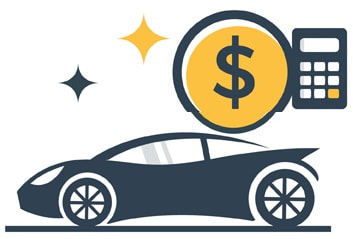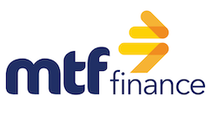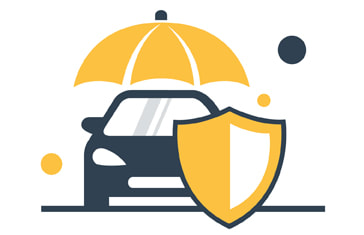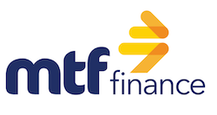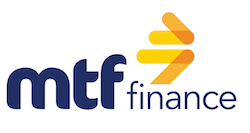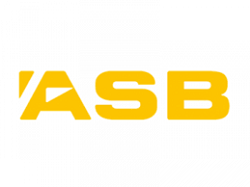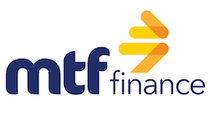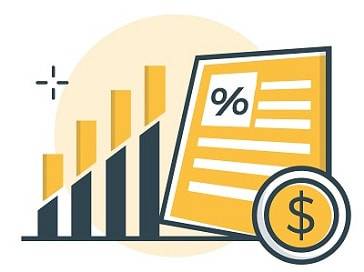Compare Business Vehicle Loans - Interest Rates and Terms - July 2024
Protect your business cashflow and get the right vehicle loan with offers from around 8% p.a. We outline the latest deals and compare alternatives such as leasing, balloon payments, paying in cash and the best offers from trusted lenders.
Updated 18 July 2024
In this guide, we look at the fundamentals of business vehicle loans and reveal the best deals currently available. We cover:
In this guide, we look at the fundamentals of business vehicle loans and reveal the best deals currently available. We cover:
- What is Business Vehicle Finance? How Do I Get the Best Interest Rate and What Fees are Charged?
- Different Vehicle Finance Options Compared - Loans vs Leasing vs Balloon Payments vs Paying Cash
- Business Vehicle Loans and Tax - Navigating the IRD's Requirements
- Five Must-Know Business Vehicle Loan Facts
- What You'll Need to Apply for Business Vehicle Loan
- Business Vehicle Loan Comparison
- Frequently Asked Questions
- Our Conclusion
Christopher Walsh, MoneyHub's Founder and Head of Research, shares his views on business vehicle loans:
|
"Business vehicle financing is not a decision to be taken lightly. While it can be a valuable asset for your business, it also comes with substantial financial commitments that can impact your business's long-term stability. Here are some critical points I believe every business owner should consider:
While business vehicle loans can be useful for business growth, they are also a significant financial commitment. For this reason alone, I urge every business owner to approach them cautiously, fully aware of the long-term implications, and always prioritise your business's financial health". |
Christopher Walsh
MoneyHub Founder and Head of Research |
Know this first: Business Vehicle Finance can be expensive - researching your options will save money
Disclaimer:
- Arranging to buy a vehicle for a business involves preparing a business case study to make sure it's justifiable, shopping and visits to showrooms, comparing options and making sure the price is fair, and arranging insurance. However, frustratingly, few people invest the same time in finding the best vehicle finance deal.
- Business vehicle financing options range from great deals to ripoffs - get the wrong financing and you could be stuck with crippling monthly payments for a long time that hold your business back and divert resources.
- The right vehicle finance for your business needs is important - what you may have saved negotiating the price of your new vehicle can easily be lost in a few months of expensive repayments.
Disclaimer:
- Borrowing money to buy a vehicle for any business is a serious decision and needs to be carefully planned and budgeted for. This step-by-step guide outlines everything you need to know about getting vehicle finance and gives tips to make it as cheap and stress-free as possible.
- In the interests of full disclosure, MoneyHub may earn a referral bonus for anyone that’s approved through some of the below links. We publish the best publicly available finance offers that we can find, irrespective of any pre-existing commercial arrangement.
|
Christopher Walsh
MoneyHub Founder |
MoneyHub's Top Business Vehicle Loans Options - Avoid high interest rates and fees with our trusted lenders:
Our Two Trusted and Affordable Vehicle Lenders Committed to Fast Quotes:
|
1. What is Business Vehicle Finance? How Do I Get the Best Interest Rate and What Fees are Charged?
A business vehicle loan is a specialised financial product designed to assist business owners in acquiring vehicles for their operations. This includes a wide range of vehicles, such as company cars, utes, vans, and trucks, catering to the diverse needs of different businesses. Sole traders, limited liability companies and partnerships are all eligible, and thousands of loan applications are submitted monthly to lenders all across New Zealand.
The purchased vehicle acts as collateral, securing the loan, which means the lender has the right to take possession of the vehicle if the loan is unpaid.
Business vehicle loans are typically repaid in fixed instalments over an agreed period, varying depending on the loan terms and the borrower's requirements. The repayment period is usually set in a way that aligns with the expected life of the vehicle and the business's cash flow capabilities.
There are several types of business vehicle loans, each with its unique structure and benefits, to suit various business models and usage requirements:
1. Secured vehicle loan: This is a popular option where the business owns the vehicle from the start, and the loan is secured by the vehicle itself. It offers potential tax benefits, as businesses can usually claim GST on the purchase price and deductions for depreciation and interest payments against the business's revenue.
This guide focuses on secured vehicle loans - but there are other options:
2. Finance Lease: In this arrangement, the lender owns the vehicle, and the business leases it. At the end of the lease term, the business can purchase, refinance, or upgrade the vehicle. This is often suitable for businesses that regularly update their fleet.
3. Operating Lease: Similar to a finance lease, it typically includes vehicle maintenance in the lease agreement. It's a good option for businesses that want a 'no surprises' approach to vehicle costs.
4. Hire Purchase: The business hires the vehicle from the lender and makes regular payments. Ownership of the vehicle transfers to the business once all payments, including the final balloon payment, are made.
5. Novated Lease: Although more common for employee benefits, it involves a three-way agreement between an employee, their employer, and the finance company. Toyota, for example, explains this type of lease in detail.
Each option has unique tax implications, balance sheet reporting, and cash flow considerations, making it vital for business owners to consult with an accountant to understand which option aligns best with their business strategy and financial health.
Know This: As a business owner, while you may be an expert in your field, navigating the complexities of business vehicle finance can be challenging. Vehicle financing can be expensive - the wrong decision upfront can be adverse to cash flow and have long-term implications on your business's financial health and operational capabilities. Please proceed with caution.
The purchased vehicle acts as collateral, securing the loan, which means the lender has the right to take possession of the vehicle if the loan is unpaid.
Business vehicle loans are typically repaid in fixed instalments over an agreed period, varying depending on the loan terms and the borrower's requirements. The repayment period is usually set in a way that aligns with the expected life of the vehicle and the business's cash flow capabilities.
There are several types of business vehicle loans, each with its unique structure and benefits, to suit various business models and usage requirements:
1. Secured vehicle loan: This is a popular option where the business owns the vehicle from the start, and the loan is secured by the vehicle itself. It offers potential tax benefits, as businesses can usually claim GST on the purchase price and deductions for depreciation and interest payments against the business's revenue.
This guide focuses on secured vehicle loans - but there are other options:
2. Finance Lease: In this arrangement, the lender owns the vehicle, and the business leases it. At the end of the lease term, the business can purchase, refinance, or upgrade the vehicle. This is often suitable for businesses that regularly update their fleet.
3. Operating Lease: Similar to a finance lease, it typically includes vehicle maintenance in the lease agreement. It's a good option for businesses that want a 'no surprises' approach to vehicle costs.
4. Hire Purchase: The business hires the vehicle from the lender and makes regular payments. Ownership of the vehicle transfers to the business once all payments, including the final balloon payment, are made.
5. Novated Lease: Although more common for employee benefits, it involves a three-way agreement between an employee, their employer, and the finance company. Toyota, for example, explains this type of lease in detail.
Each option has unique tax implications, balance sheet reporting, and cash flow considerations, making it vital for business owners to consult with an accountant to understand which option aligns best with their business strategy and financial health.
Know This: As a business owner, while you may be an expert in your field, navigating the complexities of business vehicle finance can be challenging. Vehicle financing can be expensive - the wrong decision upfront can be adverse to cash flow and have long-term implications on your business's financial health and operational capabilities. Please proceed with caution.
How do I get the best interest rate and what fees are charged?
To get the best rates, we suggest that you:
Many fees can come with a business vehicle loan, including the following:
Important: Always read the fine print and ask questions about any fees or charges that are not clear. Buying a vehicle is as financially significant as taking on a lease or an employee - please don't rush the process.
- Understand the Market Rates: Interest rates can vary widely based on the type of loan, the lender, and market conditions. We suggest considering a business vehicle loan broker who will take your details, compare lenders and offer the best deal, similar to how a mortgage broker works.
- Strengthen Your Business Financial Profile: Lenders consider your business's financial history, cash flow, and profitability. The stronger the financial position, the lower the interest rates offered, and vice-versa.
- Shop Around and Negotiate: Don't settle for the first offer you receive - too many overpay by doing just that. We suggest approaching multiple lenders to compare rates and terms or working with a vehicle loan broker to find the best deal.
- Consider the Loan Term: Shorter loan terms often have higher monthly payments but lower overall interest. Conversely, longer terms reduce monthly payments but increase the total interest paid. Decide what is most manageable for your business's cash flow.
Many fees can come with a business vehicle loan, including the following:
- Application Fee: Many lenders charge an upfront fee to process your loan application, payable if you draw down the loan. This fee covers the administrative costs involved in setting up the loan.
- Service or Administration Fees: Some lenders charge for managing your loan.
- Early Repayment Fee: Some lenders may charge a fee if you decide to pay off your loan early. This compensates the lender for the interest they lose due to the early repayment.
- Late Payment Fees: Missing a loan repayment can result in a late fee. Understanding these fees and managing your cash flow is important to avoid them.
Important: Always read the fine print and ask questions about any fees or charges that are not clear. Buying a vehicle is as financially significant as taking on a lease or an employee - please don't rush the process.
2. Different Options Compared - Business Vehicle Finance vs Leasing vs Balloon Payments vs Credit Card vs Paying Cash
Generally, there are five different ways to pay for a car. We outline the key differences in the table below:
Finance Type |
Typical Length of Agreement? |
Deposit Required? |
Who Owns the Car? |
Mileage Restrictions? |
Debt Type |
None (pay for the vehicle with retained earnings) |
N/A |
N/A |
You |
None |
N/A (No Debt) |
Business Credit Card |
Interest-free for 45-55 days |
No |
You |
None |
Unsecured |
Business Vehicle Loan |
6 months to 5 years |
No |
You |
None |
Secured |
1 to 5 years |
Yes |
You |
Yes (in most cases) |
Secured |
|
2-3 years |
Yes |
Leasing Company |
Yes |
Unsecured |
Which option is best?
There is no 'best' option as each person's circumstances and requirements are different. Our guide below outlines more information on each option, as well as a comparison of the latest lending offers if you believe a vehicle loan to be the best option for your situation.
There is no 'best' option as each person's circumstances and requirements are different. Our guide below outlines more information on each option, as well as a comparison of the latest lending offers if you believe a vehicle loan to be the best option for your situation.
Retained Earnings – the cheapest option for almost every vehicle purchase
If your business has the cash, buying the vehicle in one payment means you'll avoid interest costs, loan fees, and you can also use the vehicle as collateral for another business loan. However, if you're buying a new car, many models depreciate 25% to 40% in the first year, meaning leasing can work out to be cheaper.
Business Credit Card - a savvy way to finance a vehicle (if you can pay it off quickly)
If your business has a sufficient credit card limit and has the cashflow to repay the balance immediately (or within 1-3 months), credit cards are an affordable way to finance a vehicle. Many dealers accept credit cards, and you can also send money to a bank account using a credit card by using a money transfer service.
Business Vehicle Loans - usually the cheapest financing if you need to borrow and want to own the vehicle outright
Interest rates range from around 8-10% p.a. to as high as 25% p.a., plus lending fees: the better your business's financial situation, the lower the interest rate. Once approved, the lender sends you the money or pays the person you're buying the vehicle from directly. From there, repayments are made weekly, fortnightly or monthly over one to five years. At the end of the repayment period, the loan is cleared.
Balloon Payment financing - a risky and often costly way to finance a vehicle
Mostly offered by dealers, balloon payment financing can be suitable if you want to get a new vehicle every few years. But the arrangements require a sky-high final payment, as well as interest costs and an upfront deposit. For all of these reasons, a business vehicle loan will, in most cases, be a cheaper alternative.
Vehicle leasing - a cheap way to access a vehicle (but your business will never own it
Car leasing is essentially a long-term rental; you'll never own the vehicle, and there will be mileage restrictions. The costs are simple - you pay an initial deposit and then an ongoing fee to drive the vehicle and use it in your business. The standard length of a vehicle lease contract is one to three years. Once the contract ends, you return the vehicle and pay for any damage or excess mileage. Our guide to vehicle leasing has more information.
|
Christopher Walsh
MoneyHub Founder |
MoneyHub's Top Business Vehicle Loans Options - Avoid high interest rates and fees with our trusted lenders:
Our Two Trusted and Affordable Vehicle Lenders Committed to Fast Quotes:
|
3. Business Vehicle Loans and Tax - Navigating the IRD's Requirements
When financing a vehicle for your business, understanding the tax implications is crucial. Inland Revenue (IRD) has specific rules and requirements for claiming motor vehicle expenses, depreciation, and interest deductions. Here's what you need to know:
Motor Vehicle Expenses Claims:
GST, Loans, and Leasing:
Depreciation:
Interest Deductions:
Selling a Business Vehicle:
Final Considerations:
Motor Vehicle Expenses Claims:
- Sole Traders and Partnerships: If a vehicle is used solely for business purposes, all associated expenses (fuel, maintenance, insurance, WOFs, tyres, etc.) are claimable 100% as expenses. Personal use, including commuting, must be excluded. When used for both personal and business purposes, expenses must be apportioned. The IRD outlines their logbook method https://www.ird.govt.nz/income-tax/income-tax-for-businesses-and-organisations/types-of-business-expenses/claiming-vehicle-expenses/use-a-logbook and how you claim expenses based on the percentage you use the vehicle for business.
- Company Structures: Different rules apply for companies; it's best to talk to your accountant about how the vehicle will used.
GST, Loans, and Leasing:
- GST on Business Use: GST can be claimed for the purchase price and expenses on a personal vehicle used for business, whether you're a sole trader, a partnership or a company.
- Loan Repayments: While the principal repayments of a loan aren't deductible, the interest portion can be claimed as a business expense.
- Leasing vs. Buying: Leasing payments are fully tax-deductible, but you don't own the asset. When buying and financing a vehicle, you can claim GST on the purchase price and expenses, and the vehicle is depreciated as an expense over several years.
Depreciation:
- Depreciation Claims: The IRD allows businesses to depreciate vehicles over their useful life, which can be claimed as a tax deduction. You can see more about depreciation rates on the IRD's website https://www.ird.govt.nz/income-tax/income-tax-for-businesses-and-organisations/types-of-business-expenses/depreciation/claiming-depreciation/work-out-your-assets-rate-and-depreciation-value
Interest Deductions:
- Deducting Interest on Loans: The interest portion of any loan taken out to purchase a business vehicle is tax-deductible. This can significantly reduce the overall cost of the vehicle.
Selling a Business Vehicle:
- GST and Profit on Sale: If GST was claimed on the purchase, it must be accounted for upon sale. Tax must be paid on any profit from the sale, and the asset must be removed from the fixed asset register.
Final Considerations:
- Buy or Lease Decision: Whether to buy or lease depends on your business's financial situation, cash flow, and vehicle usage needs. We suggest talking to your accountant to understand which option offers more tax advantages.
- Record Keeping: Accurate records are essential for claiming vehicle expenses and auditing purposes; apps for efficient tracking save time and are usually worth the ongoing fee.
4. Five Must-Know Business Vehicle Loan Facts
A Business Vehicle Loan requires your business to commit to repayments over an agreed-upon time-frame
|
The loan deal with the lowest interest rate is usually the best option, but be aware of upfront feesTo make an informed decision, you simply need to compare the annual interest rates offered between the lenders – the one with the lowest percentage is the best deal. Fees to get the loan will vary between lender, but the interest rate is the biggest factor in getting the best loan. Pick the wrong lender and you can easily pay $100 more every week on a $10,000 vehicle. It's a drain on cashflow and can hold your business back.
|
Make sure a vehicle loan is right for your businessVehicle Loans are not for every business - if you have irregular cashflow and a high client burn rate, taking a loan could end up an expensive mess if you default.
The benefits:
Watch out for:
|
Business Vehicle Loans are offered by a lot of different companiesVehicle lending is competitive – you shouldn’t go with the first quote you get. Look at all the options and be open-minded to financing beyond traditional banks - it can at times be cheaper. Vehicle lenders include:
Buying a new vehicle from a manufacturer-dealership?
Buying a used vehicle from a manufacturer-dealership?
|
Make your repayments more manageableThere are a few ways to reduce the amount you repay on a vehicle loan:
The table below shows the difference in interest costs, driven by the term of the loans:
Figures provided by our Loan Amortisation Calculator
|
5. What You'll Need to Apply for a Business Vehicle Loan
For a business vehicle loan application, lenders will require specific business details to assess the loan's affordability and the business' solvency and credit profile. While personal car loans often focus on individual income and employment details, business vehicle loans require broader business-related information. Here's what you typically need to provide:
Preparation Tips:
- Business Financial Statements: Most lenders will request the most recent financial statements of your business. This includes balance sheets, income statements, and cash flow statements. These documents provide a comprehensive view of your business's financial health.
- Business Tax Returns: Similar to personal car loans requiring an IRD return, you'll need to provide recent business tax returns for a business vehicle loan. Depending on the lender's requirements, this could be the last one or two years of filed returns.
- Proof of Business Income: You may be asked to provide documents that show your business's income. This could include bank statements or profit and loss statements. The lender uses this to assess whether your business has a stable income sufficient to cover the loan repayments.
- GST Registration and Returns: If your business is GST-registered, you must provide your GST number and possibly recent GST returns. This is particularly relevant regarding the GST implications of purchasing or leasing a business vehicle.
- Details of Existing Business Debts: Information about your business's existing debts or loans is crucial. This includes details of other vehicle loans, if any, and their current balances and repayment terms.
- Business Ownership and Structure Information: You must provide details about your business's legal structure (e.g., sole proprietorship, partnership, limited company) and information about the owners or significant shareholders.
- Bank Account Details of the Business: This includes the bank account number and proof that the account is in the business's name.
- Identification Documents: Although this is more related to personal identification, lenders still require proof of identity of the business owner(s) or directors, such as a driver's license or passport.
- Credit History of the Business: Lenders will check the business's credit history. Ensure that your business has a good credit record, or be prepared to explain any negative entries.
- Vehicle Information: Details of the vehicle you intend to purchase, including make, model, price, and how it will be used in the business.
Preparation Tips:
- Organise Your Documents: Have all your documents organised and up to date. This can speed up the application process.
- Check Your Credit: Know your business's credit profile beforehand and rectify inaccuracies.
- Understand the Loan Requirements: Each lender may have specific requirements. It's a good idea to review these before applying.
Do I need a deposit to get business vehicle finance?
Whether a deposit is required depends on several factors related to your loan application and the lender's policies. Here's what you need to consider:
Factors Influencing the Need for a Deposit:
Points to Consider:
Next Steps:
In summary, while a deposit is not always mandatory for business vehicle finance, it's a common practice influenced by multiple factors. Understanding your business's position and the lender's criteria will help you navigate this aspect of vehicle financing effectively.
Factors Influencing the Need for a Deposit:
- Lender's Requirements: Different lenders have different criteria for vehicle finance. Some may require a deposit as part of their standard loan terms, while others may offer finance without a deposit.
- Creditworthiness of Your Business: If your business has a strong credit history and solid financials, you might be able to negotiate finance without a deposit. Lenders are more likely to waive the deposit requirement for lower-risk businesses.
- Loan-to-Value Ratio (LVR): The LVR is the loan amount compared to the vehicle's value. A lower LVR (which implies a higher deposit) can sometimes secure a better interest rate or loan terms.
- Type of Vehicle and Its Use: The type of vehicle you're financing and its intended use can also influence the need for a deposit. For example, vehicles that retain their value well or are essential to your business operations might require a smaller deposit.
- Loan Terms and Conditions: Longer loan terms might require a deposit to reduce the lender's risk. Conversely, short-term loans might have more flexibility regarding deposit requirements.
- Business's Financial Health: A strong balance sheet, good cash flow, and profitability can play a role in reducing or eliminating the need for a deposit.
Points to Consider:
- Deposit Size: If a deposit is required, the size can vary. Typically, it ranges from 10% to 20% of the vehicle's purchase price, but this can differ based on the factors mentioned above.
- Benefits of a Deposit: A deposit can sometimes work in your favour, as it can usually lower your monthly repayments, reduce the total interest paid over the life of the loan and/or improve your chances of loan approval.
- Alternatives to a Cash Deposit: In some cases, trade-ins or security over other assets could be used as a deposit.
Next Steps:
- Consult with Lenders: Talk to various lenders to understand their specific requirements and see if a deposit is necessary for your situation.
- Evaluate Your Finances: Assess your business's financial capability to provide a deposit without straining your cash flow.
In summary, while a deposit is not always mandatory for business vehicle finance, it's a common practice influenced by multiple factors. Understanding your business's position and the lender's criteria will help you navigate this aspect of vehicle financing effectively.
6. Business Vehicle Loan Comparison
We've put together the best deals currently available, and list their upfront fees. Each lender will assess your ability to make repayments differently, which means you will most like be offered a range of interest rates by different lenders. What matters is that you can meet the repayments, understand terms and any associated fees.
The list below is in alphabetical order - the best deals are those with the lowest interest rates. A popular option is to contact a range of lenders for a non-obligation interest rate quote. Be clear on the amount you want to borrow upfront and what your income is, as well as all other loans/credit card balances you have.
Do you have a solid credit history and the income to make repayments without any foreseeable issue?
If you have good credit, we suggest contacting these three lenders for quotes:
Important: The interest rates stated above (and below) are the best offers - each borrower will be assessed for suitability, whereby an interest rate offer will be provided if the loan is approved. This interest rate may be higher than those disclosed below.
The list below is in alphabetical order - the best deals are those with the lowest interest rates. A popular option is to contact a range of lenders for a non-obligation interest rate quote. Be clear on the amount you want to borrow upfront and what your income is, as well as all other loans/credit card balances you have.
Do you have a solid credit history and the income to make repayments without any foreseeable issue?
If you have good credit, we suggest contacting these three lenders for quotes:
- Simplify - specialist vehicle lending
- MTF Finance - specialist vehicle lending with branches all over New Zealand
Important: The interest rates stated above (and below) are the best offers - each borrower will be assessed for suitability, whereby an interest rate offer will be provided if the loan is approved. This interest rate may be higher than those disclosed below.
Current 10+ Vehicle Loan Options Available Throughout New Zealand - Rates, Fees and Details:
|
Simplify
|
|
MTF Finance
|
|
Heartland Bank Truck and Trailer Loans
|
|
BNZ Asset Finance
|
|
Kiwi Car Loans (Business Lending)
|
|
ANZ Bank Asset Finance
|
|
ASB Bank Asset Finance
|
|
Finance Direct Business Finance
|
|
Kiwibank Asset Finance
|
|
UDC Commercial Vehicle Finance
|
|
Westpac Equipment Finance
|
|
Christopher Walsh
MoneyHub Founder |
MoneyHub's Top Business Vehicle Loans Options - Avoid high interest rates and fees with our trusted lenders:
Our Two Trusted and Affordable Vehicle Lenders Committed to Fast Quotes:
|
7. Frequently Asked Questions
Arranging business vehicle loans isn't complicated, but there are pitfalls. We strongly suggest asking a lender anything you're unsure of before signing up to any loan. This is the best way to lower the risk and ensure you can afford the loan repayments. Our selection of common questions helps explain vehicle loans in further detail:
Can I get a business car loan if I'm self-employed (sole trader)?
Yes, self-employed individuals and sole traders can apply for business car loans. Lenders typically require proof of stable income, which can be demonstrated through bank statements, business financial records, and tax returns. Having your financial documents in order is important, as well as showing your business's income and expenses to reassure lenders of your ability to repay the loan.
Can you claim car repayments and repairs against taxable income?
You can claim certain costs associated with a business car on your tax returns. This includes the interest on loan repayments and depreciation and repairs to keep the vehicle roadworthy. However, the principal amount of the loan repayments is not tax-deductible.
How long does it take to get approved for a business car loan?
The approval time for a business car loan can vary. Generally, it may take anywhere from a few hours to a few days, depending on the lender and the completeness and complexity of your application. Online brokers and lenders may offer quicker approval times, while banks may take longer. To speed up the process, ensure all your documentation is accurate and readily available when applying.
The lender advertised “from 9.99%”, but I was quoted a much higher rate - why is this?
What the lender advertises and what it offers to most people are entirely different. Your interest rate will depend on your business's cashflow and affordabilty, the vehicle you are buying and other factors.
What happens if I want to pay off the outstanding balance early?
You can do this at any time, but check the fees you’ll pay – some lenders charge, some don’t. If you plan to repay early then it's best to look at loans that offer this free of charge. The easiest way to arrange early repayment is to contact the lender.
Do I need to take out insurance and where should I get it?
Yes, even if your vehicle isn't secured, having insurance protects you from financial loss if you cause damage to another vehicle. Our car insurance guide outlines the best policies available, and while it's not specific to commercial use vehicles, it outlines the insurers available, as does our car insurance directory.
What happens at the end of the finance deal?
Nothing changes other than you stop making your regular repayment to the lender. Any security over the vehicle will be discharged (either for free or at a fee). This means you will be free to sell the vehicle later on without any complications.
Our Conclusion
Securing finance for a business vehicle is a significant decision that can impact your business's financial health. Before committing to any business vehicle loan, it's important to keep the following considerations in mind:
Remember, the right financing decision for your business vehicle depends on thoroughly evaluating your business's current financial status and plans. Understanding all aspects of business vehicle financing will ensure that you make a well-informed decision supporting your business goals.
- Take Time to Compare Offers: Just as with personal car finance, shopping around for business vehicle loans is crucial. Obtain quotes from various lenders to compare rates and terms. This upfront effort can lead to substantial savings. Relying solely on dealer-arranged finance might limit your options and result in higher costs.
- Be Aware of Hidden Costs and Conditions: Business vehicle loans can come with fees and clauses that aren't immediately apparent. Carefully read and understand the fine print of any loan agreement. Consider any additional charges, early repayment penalties, and default terms.
- Consider the Long-Term Impact: A business vehicle loan is a commitment that extends several years into the future. It's essential to assess the affordability of the loan carefully. Overborrowing can strain your business's finances and lead to financial hardship. Consider the loan's impact on your business's cash flow and overall financial strategy.
- Evaluate the Total Cost of Ownership: Beyond the loan repayments, consider the total cost of owning and operating the vehicle. This includes maintenance, insurance, fuel, and depreciation. These ongoing costs will affect your business's budget and should be factored into your decision. While you can deduct the cost of interest and associated costs, they're all expenses that must be financed by revenue.
- Alternatives to Financing: While not always possible, purchasing a vehicle outright with cash eliminates interest costs and simplifies acquisition. If this isn't feasible, consider whether leasing the vehicle might suit your business needs and financial situation.
Remember, the right financing decision for your business vehicle depends on thoroughly evaluating your business's current financial status and plans. Understanding all aspects of business vehicle financing will ensure that you make a well-informed decision supporting your business goals.
Related Guides:
Car Finance Company Reviews:
- Small Business Loans
- Operating Leases
- Finance Leases
- Operating Leases vs Finance Leases
- Best Car Finance
- Car Finance Calculator
Car Finance Company Reviews:

